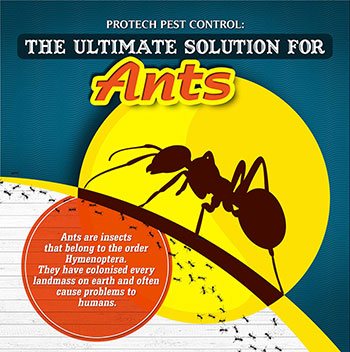The Pros And Cons Of Chemical Bed Bug Therapies: What You Required To Know
The Pros And Cons Of Chemical Bed Bug Therapies: What You Required To Know
Blog Article
Short Article By-Ehlers Morsing
Did you know that bed bugs are among the most difficult bugs to eliminate? If you're taking into consideration chemical treatments to do away with these pesky animals, it is essential to consider the advantages and disadvantages.
In this short article, we'll explore the efficiency of chemical bed pest therapies, the possible health dangers connected with them, and their influence on the atmosphere.
By understanding these variables, you'll be better furnished to make an educated decision about tackling your bed pest issue.
Performance of Chemical Bed Bug Treatments
You will certainly be pleased to recognize that chemical bed insect treatments are usually quite efficient in eliminating problems. These treatments work by targeting the bed bugs' nervous system and interrupting their capability to feed and reproduce. By using source website developed to eliminate bed bugs, you can successfully remove them from your home.
One of the advantages of chemical therapies is their capability to reach even one of the most hard-to-reach locations, such as cracks and gaps where bed bugs like to hide. Furthermore, chemical therapies can supply long-lasting outcomes, assisting to avoid future problems.
Nonetheless, it is essential to follow the guidelines meticulously and take required safety and security preventative measures when utilizing these therapies.
Possible Health And Wellness Risks of Chemical Bed Bug Therapies
There are several potential wellness risks related to chemical bed pest therapies that you need to be aware of. While these treatments can efficiently eliminate bed insects, they might likewise posture dangers to your wellness.
One common threat is the exposure to harmful chemicals. The pesticides made use of in these therapies can be hazardous if breathed in or if they enter into contact with your skin. Some people might experience allergies or respiratory system issues therefore.
In addition, chemical treatments might leave residue on surfaces, which can be ingested or taken in via the skin, resulting in more health and wellness difficulties.
It is essential to carefully comply with the guidelines offered by specialists and take needed precautions to lessen the possible health and wellness dangers associated with chemical bed bug treatments.
Environmental Impact of Chemical Bed Bug Therapies
One possible interest in chemical bed insect treatments is their effect on the atmosphere. When thinking about the ecological influence of chemical bed bug therapies, below are 4 vital aspects to keep in mind:
1. Pesticide runoff: Chemical treatments can possibly contaminate water sources, resulting in hazardous impacts on water life and ecological communities.
2. Air air pollution: The release of chemical fumes during therapy can add to air contamination, impacting not just the setting but additionally human health.
3. Damage to useful bugs: Chemical therapies may not just target bed bugs but additionally damage advantageous insects such as bees and butterflies, which play necessary duties in pollination.
4. Long-lasting results: The use of chemicals may have long-lasting consequences on the environment, including soil contamination and interruption of all-natural communities.
Considering these variables, it's vital to weigh the possible dangers and advantages of chemical bed bug treatments and discover alternative, much more environmentally friendly options.
Conclusion
So, when it comes to chemical bed pest therapies, there are certainly advantages and disadvantages to take into consideration.
On one hand, they can be very effective in removing these pesky bugs.
Nonetheless, there are prospective health and wellness dangers to be aware of, in addition to the environmental impact of using chemicals.
It is very important to evaluate these variables thoroughly before choosing a treatment approach.
Yet, suppose there was one more service? Something that could efficiently remove bed insects without the downsides?
Stay tuned, because there might simply be an unexpected choice coming up.
